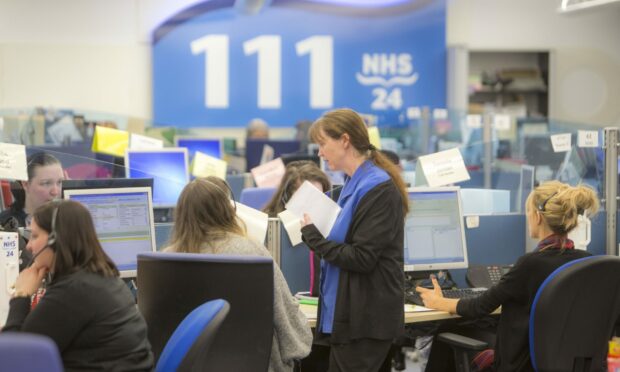Bosses at NHS 24 have apologised after a watchdog found a Covid-19 patient in Scotland died during an “unreasonable” delay in calling an ambulance.
The patient was struggling with breathlessness when their partner called the free hotline, having tested positive for the virus a week earlier.
They were on hold for 20 minutes before eventually reaching an operator, who then spent another half an hour asking questions.
During the conversation the call handler repeatedly asked to speak to the patient, whose area of residence has not been disclosed, to take information directly from them.
This was despite the caller answering for them because they were struggling to speak and confused, the Scottish Public Service Ombudsman (SPSO) found.
Procedures ‘not fit for purpose’
An ambulance was eventually called by the operator but, by the time paramedics arrived, the patient had stopped breathing and could not be resuscitated.
The industry watchdog has ordered NHS 24 to apologise for the failings and has called the wait the patient faced “unreasonable”.
It says the call handler was following the correct protocols laid out but that these were “not fit for purpose”.
The SPSO also says that is breathlessness is the primary symptom, there should be a clear escalation route to a medically trained clinician.
We have fully reviewed and accepted the recommendations from the report and amended our processes
In a statement provided to The Courier, Dr Laura Ryan, NHS24‘s medical director, said: “NHS 24 has been in touch with the family and have offered our sincerest apologies for their loss.
“We have fully reviewed and accepted the recommendations from the SPSO report and amended our processes in line with these recommendations.
“All clinical advice which is provided by NHS 24, is continuously reviewed by clinical subject matter experts and processes are updated as required. All calls to NHS 24 also have input from a senior clinician.”
The SPSO ruling said: “We considered it unreasonable for the second call to have lasted 30 minutes before an ambulance was called.
Protocol led to delay in patient’s care
“We noted that the call handler was following the protocol correctly, but were of the view that if the protocol took 30 minutes to establish that an emergency response was required, it was not fit for purpose.
“We considered that rigid following of the protocol led to a delay in obtaining medical attention.”
However, another complaint about advice given during an initial call to 111 a few days before has not been upheld.
NHS 24 offers “urgent care and assessment” for all injuries and illness that are not life-threatening or limb-threatening.
Earlier this month it was revealed the organisation plans to create more than 300 jobs with a new contact centre in Dundee.
